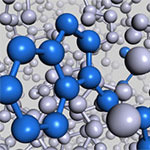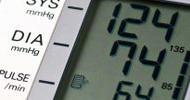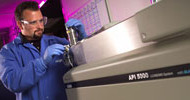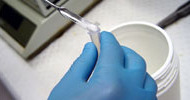Description
Phosphorylated substances and stabilising phosphorylated compounds were previously difficult to measure due to chemical instability. Now they can be readily detected using the Phos-tag™ acrylamide, agarose, biotin and MS kit available exclusively in the UK from Alpha Laboratories.Protein phosphorylation has a prominent role in signal transduction and the versatile Phos-tag has been adapted to create a number of tools for phosphorylation analysis. This novel Phos-tag labelling system was developed by the Department of Functional Molecular Science at Hiroshima University and recognises the phosphate monoester group. Under neutral physiological pH conditions Phos-tag strongly binds phosphomonoester di-anions enabling it to replace conventional enzyme immunoassay and radioactive isotope methods for capturing substances with a phosphate monoester group.
Post-translational modification by phosphorylation plays a vital role in regulating the function, activity and location of numerous protein targets. Phos-tag labelled acrylamide is available for electrophoresis applications like SDS-PAGE mobility shift assays and Phos-tag biotin can be used in Western Blot detection in place of an anti-phospho antibody.
Adaptation of the Phos-tag for use in column chromatography, by construction of a column with labelled agarose, enables purification based on phosphate affinity, providing enriched fractions for further phosphoproteomic investigations. Phos-tag can even provide a radiation free solution for MALDI-TOF/MS analysis.
Contact Alpha Laboratories on 0800 38 77 32 or email sales@alphalabs.co.uk to request more information on this novel labelling system.




























